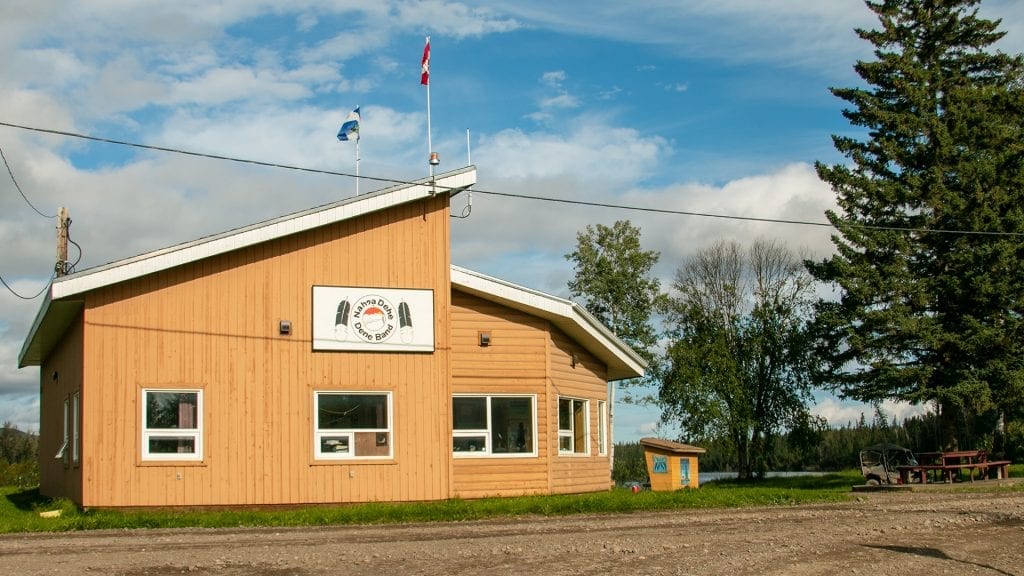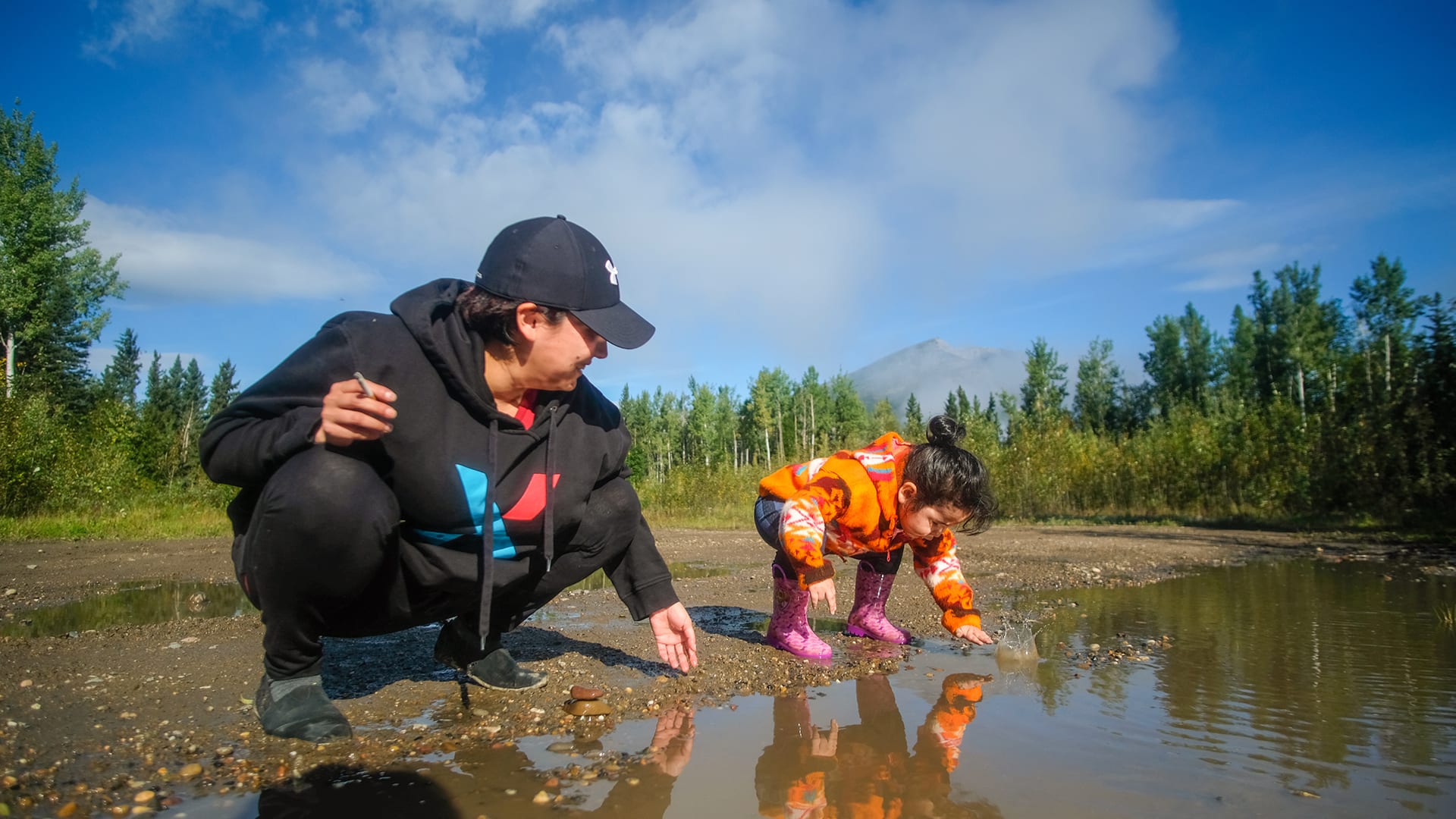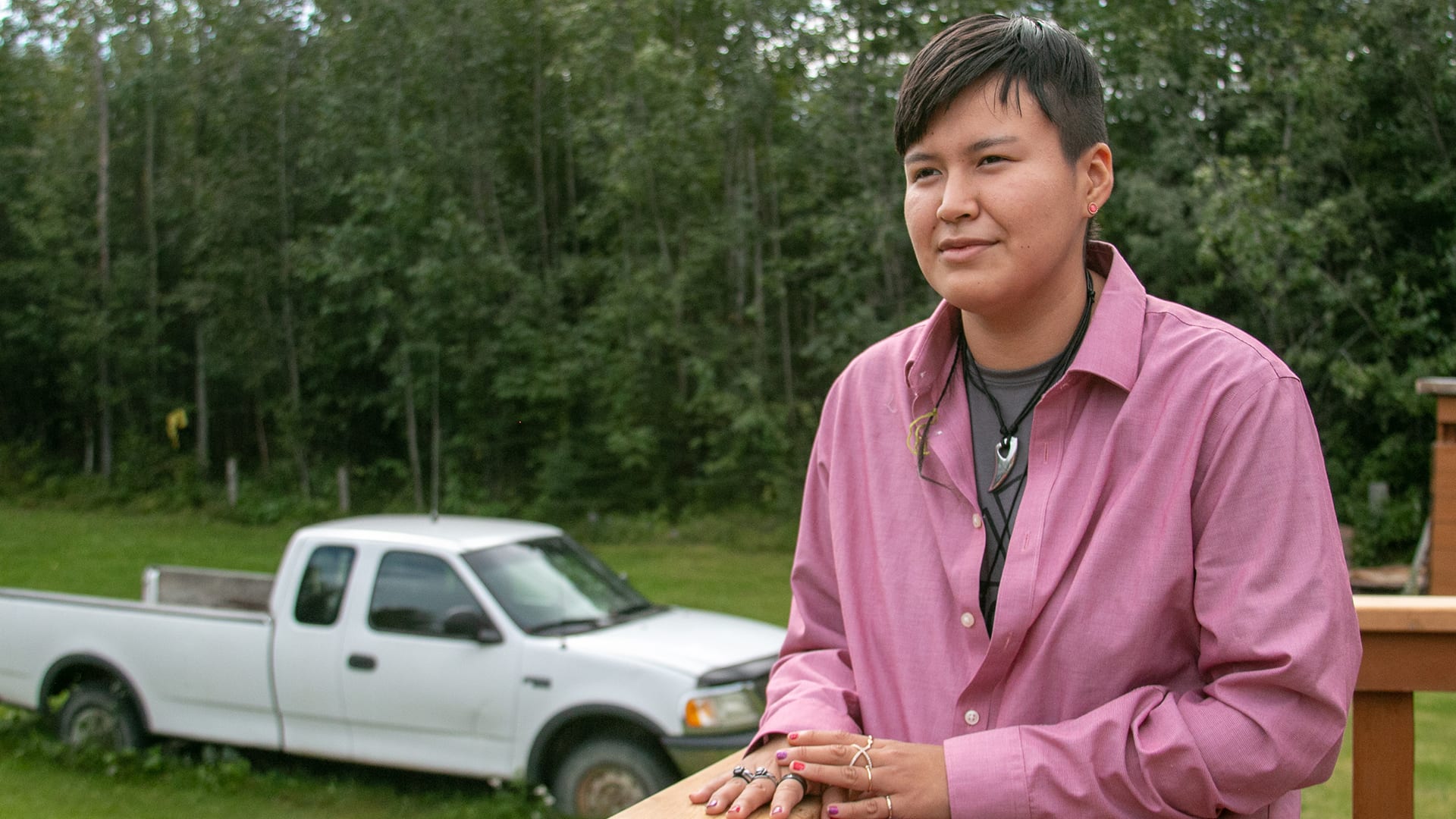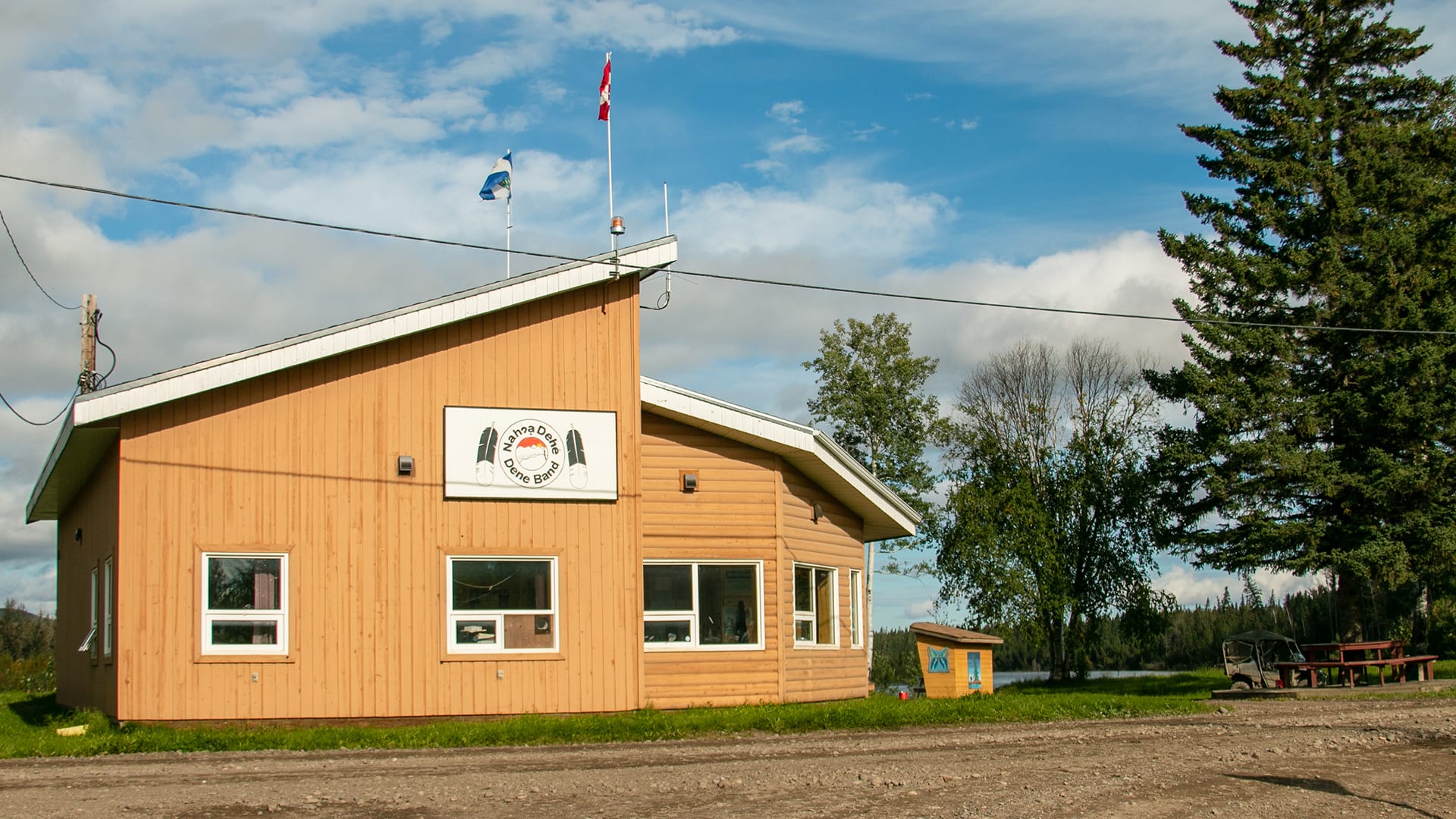
The band office in Nahanni Butte, N.W.T. Photo: Charlotte Morritt-Jacobs/APTN
In the heart of Denendeh Northwest Territories, picturesque mountains make for breathtaking views and hold important stories in their traditional place names, like Tthenáágó – meaning strong rock in Dene Zhatıé.
The land and water of the area was used and travelled on by the Kaska and Naha Dene for centuries until the community of Nahanni Butte, located 500 km southwest of Yellowknife, was permanently settled in the late 1950s.
The federal government relocated families from the Netla River settlement 24 km away to send children to residential school.
Ever since, the community has been slow to acquire sustained infrastructure and economic opportunities.
For the roughly 100 people living in Nahanni Butte today, the community is home, filled with deep rooted family ties and a place that is difficult to leave but hard to stay.
Leslie Auger has spent the last five years scraping money together with odd jobs to feed her family of five.
“It’s hard to find a job because there’s no childcare, I’ll work for like a month and then I won’t have a babysitter. So, I’ll always end up having to quit,” Auger said.
There is only one store in the community and cheaper online options including Amazon does offer shipping to Nahanni Butte.
“It’s been really hard to live here, in the summer because of isolation. It’s extremely expensive. They don’t sell papers here. My daughter is still in pampers and even when we get to go out to get it it’s still $50 per box,” she said.

Auger grew up in foster care and had her own issues with trauma and addiction. The barriers to accessing fly in supports for her mental health is cumbersome.
“We rely on planes and stuff for medication which is not good, especially with the elders who need medication right away,” Auger said.
The inequitable situation in Nahanni Butte has been recognized by southern Canada.
Last year, the Centre for the Study of Living Standards, a national nonprofit research organization based in Ottawa, released a dataset which outlined Nahanni Butte’s lack of infrastructure.
Out of 236 remote communities across Canada, Nahanni Butte ranked second last for quality of infrastructure.
The report pointed to several factors
One in five houses need repairs, all power comes from diesel generators and their fresh water arrives by truck.
According to Robert Tordiff, assistant deputy minister with the territorial department of Municipal and Community Affairs, the First Nation has primary governance over its infrastructure and holds the rights to capitol planning.
Unfortunately, creating infrastructure that’s up to par with the south would come with a much higher price tag.
“Trucked water tends to exist in the majority of the N.W.T., most of the communities don’t have piped water. There’s a number of reasons for that the environment being one of them and the challenges of maintaining an above or underground piped system,” Tordiff said.
Ruby Betsaka, 18 years old and the only high school student in the community, sees education as one of the biggest areas of improvement.
“Everyone is a dropout here. Either they didn’t like the school so they dropped out. They should add more courses,” Betsaka said.

The local school only teaches up until Grade 10, after that students are transported to Fort Simpson, the hub community for the Dehcho. But it’s also isolated twice a year during break up and freeze up.
Betsaka noted the tough transition for youth who are uprooted from their family to complete their studies.
“When I went to Fort Simpson it was really different for me, being around people I didn’t know and didn’t have many friends,” she said.
Betsaka is currently in Grade 12 but left school in January of this year after being severely bullied.
“It was really, really hard, I contemplated suicide and I drank a lot because of it.”
Her parents pulled her out last semester when COVID-19 hit. Since then she’s watched her nephews.
She’s not sure if she’ll go back. If she does she will have to find her own accommodations as the student residence in Fort Simpson was closed due to pandemic health measures.
Her brother Nathan agrees with Ruby, arguing that the quality of life for local young people suffers
“It’s pretty difficult, some people try for a house here, some are still waiting” Nathan said.
He describes striking a balance between contemporary and traditional lifestyles as a juggling act.
“Back in the day people use to get what they need off the land. Today they just go into the store for meat they no longer hunt. Some of the youth don’t even hunt. From my generation I think I’m the only one who shot a moose last year,” he said.
Nathan plans to move south, get an education and come back home to build some of that infrastructure.
“I’d like to come here and then work as a heavy equipment technician instead of sending in someone from Fort Nelson or Yellowknife or Hay River,” Betsaka said.
There are attempts to bring the community up to speed.

Nahanni Butte dene band Chief Darrel Betsaka says getting better broadband internet service would be a good place to start.
“One of the things we are looking into having develop and brought into the community – we are one of the few communities that were not issued fibre optics. I would like to see it further in terms of economic development,” Darrel said.
Another action item for the band, tackling transportation isolation, especially during break up and freeze up where the community is accessible only by plane.
“Our community itself is going to upgrade its all-season road which hasn’t been done in years. We recently had our airport upgraded and that’s never been done in my lifetime,” he said.
While size may have explained infrastructure deficiencies in the past residents of Nahanni Butte, they said they don’t want it to define hold back their future.









